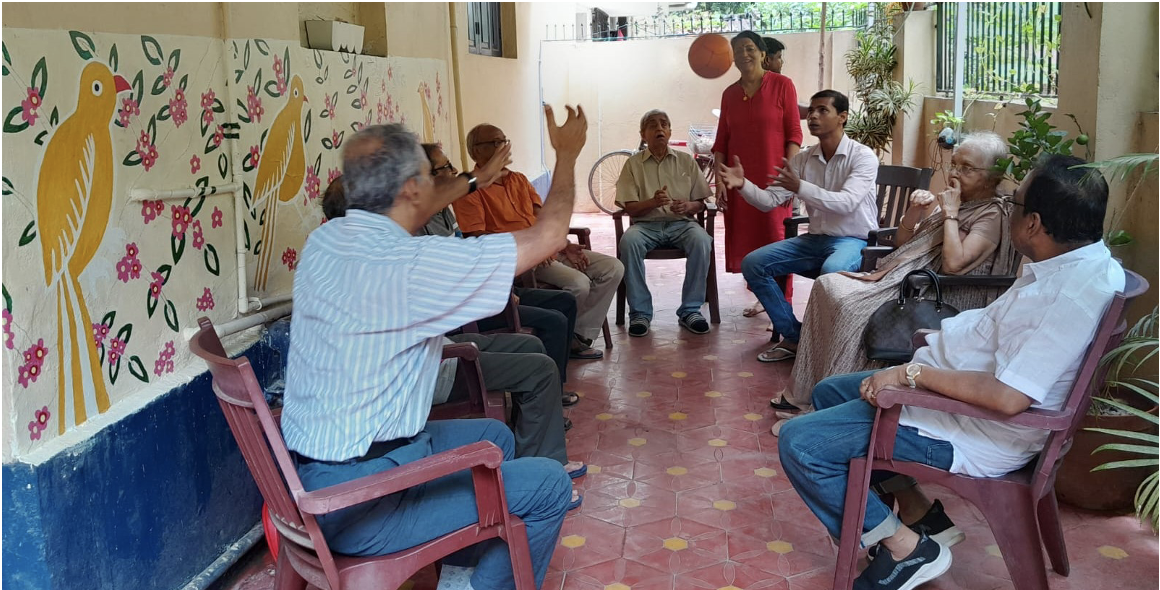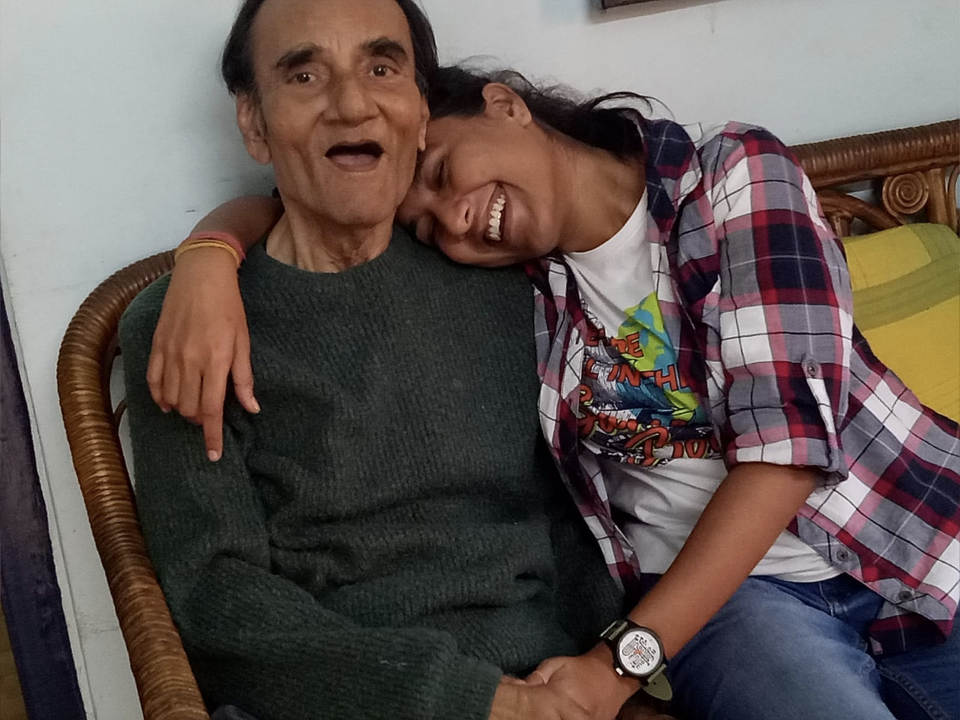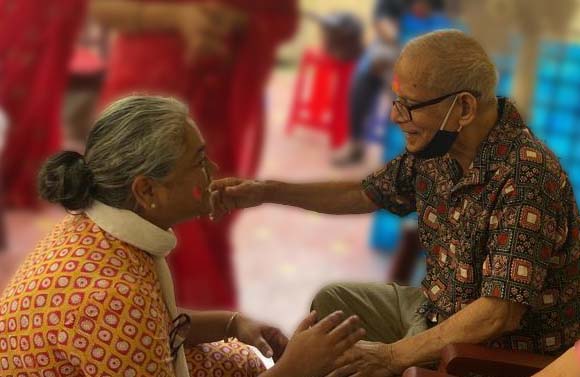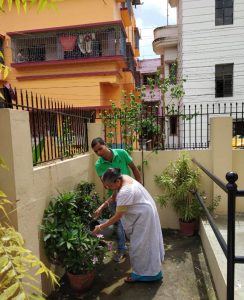Spark of Life Success Stories:
How empathy, compassion, kindness and pure joy improve the lives of all
For Dementia Care International, Australia by Spark of Life Master Practitioner, Nilanjana Maulik, Secretary General, ARDSI Calcutta
As a professional caregiver for people living with dementia, I spend a lot of time telling our stories. And, today it is going to be no different.
The stories are of the people living with dementia and their caregivers at Sriti Sudhay (Memories Beckon), the Daycare Centre run by the Alzheimer’s And Related Disorders Society of India, Calcutta Chapter.
The essence of the care environment at this 15 year old centre revolves around the little things we do, the ways in which we make sure that the life one deserves is maintained.
Our care philosophy is also strengthened by the Spark of Life Education where empathy, compassion, kindness and pure joy ensures improvement in the lives of all.
We define our daily Spark of Life Positive Connections through everyday activities, reminiscing, novel experiences, and spending time enjoying music, food and each other’s company.
These connections are a mix of emotional expressions like love, appreciation, and gratitude and sometimes physical, like display of affection with a hug and touch.

My first Spark of Life Story begins with Sandip Ghosh, living with Alzheimer’s disease. He is seen below with Shrijani, Project Coordinator one pleasant winter afternoon at the center. Sandip has lost his wife of four decades who was, quite simply, his strength and stay all these years. Her death was sudden and was on his birthday. She had gone to the grocery to get some spices she needed to cook his favourite biryani, but was hit by a bus and never returned to him.
The death of a loved one is a blow at any time, but losing a spouse after many years of togetherness can be especially difficult and more so if one is experiencing the challenges of Alzheimer’s at the same time.
He was mostly disconnected in the beginning after the loss. We know clearly how our emotional lives directly affect our hearts. And, research says that the heart actually changes shape in response to sudden emotional disruption. In most cases, however, when the acute emotional stress disappears, the heart recovers and goes back to its normal shape.
The emotional and physical support through positive connections that Sandip and Shrijani shared was the key to how well he coped. They mostly used their relationship to create experiences and activities that both enjoyed.
Instead of any explanations, Shrijani would just hug him or rest her head on his shoulder.
This reality of now, the feeling of now, being cared for at that moment, was pure empathy.

My second Spark of Life Story begins with Mr. Dasgupta and myself.
Mr Dasgupta would always cry and look for his mother. My presence reminded me of his mother and so I would create activities, interactions and opportunities that helped to maintain the relationship and connection that he had with his mother. Mr Dasgupta’s vascular dementia did not help him to identify people, things and places correctly, but that did not stop him from knowing that he loved his mother, and that his mother loved him. The way that he looked at me and lit up when I would be with him was enough proof that he was able to recognize that I was someone he loved and trusted. This love and trust was built through connecting with each other in his care.

Dementia does not take away a person’s wish to connect with other people. It is just their ability that is affected. So, if we talk to a person living with dementia and make them feel that their life is just as precious and valuable, and beautiful as ours, it can make a world of difference.
At Sriti Sudhay, our positive connection rests on speaking to someone as though they belong and can contribute. That’s what allows all of them to offer exactly as they are at that moment.
The aim of our centre has always been to characterize positive aspects of caregiving experiences and focus our Spark of Life Conversations that highlight how people are connected, rather than how they are losing connection.
These stories of positive emotions and experiences broadens and builds on what is going well at Sriti Sudhay. It acknowledges that thriving can occur despite struggle. It removes stigma and supports the belief that persons living with dementia can live well.
India has 8.8 million people experiencing dementia currently. With no cure on the horizon the focus remains on this quality positive care.
_______________________________________________________________________________
Restoring Purpose in Life

By Nilanjana Maulik, Spark of Life Master Practitioner at the ARDSI Day Centre, Kolkata, West Bengal.
Since May 2017, Nilanjana has implemented the Spark of Life Philosophy in her Day Centre that specifically supports people with dementia.
Nilanjana shares, ‘I would love to tell about a lady named Rama Di who at the age of 71 is a bundle of energy. She has always taken control of life, but with dementia setting in she was obviously losing control and her environment was restricting her freedom and the experience was traumatic for her.
She came to our centre a year ago with lots of stress and an urge to wander, looking for opportunities to be engaged and feel important. The staff has learnt about the Spark of Life 5 Core Emotional Needs. They found out about her past life history and that Rama Di grew up in rural Bengal and was always playing in the green fields most of her childhood days.
 The staff worked together to devise a simple but powerful solution to meet her unmet needs and improve the quality of life for her. They created a space in the garden where she can walk as she pleases and feel comfortable among the green plants. Enabling her to again experience the freedom of space has made a profound difference to her quality of life. She started planting new plants, spending time watering them and clearing the weeds.
The staff worked together to devise a simple but powerful solution to meet her unmet needs and improve the quality of life for her. They created a space in the garden where she can walk as she pleases and feel comfortable among the green plants. Enabling her to again experience the freedom of space has made a profound difference to her quality of life. She started planting new plants, spending time watering them and clearing the weeds.
Now Rama Di has a place that she enjoys, her wandering has turned to being in the garden with joy and a purpose.’
